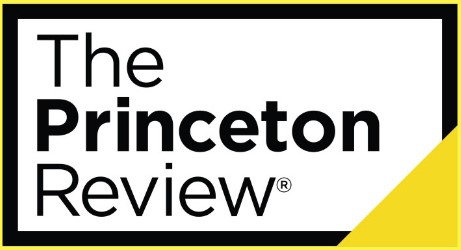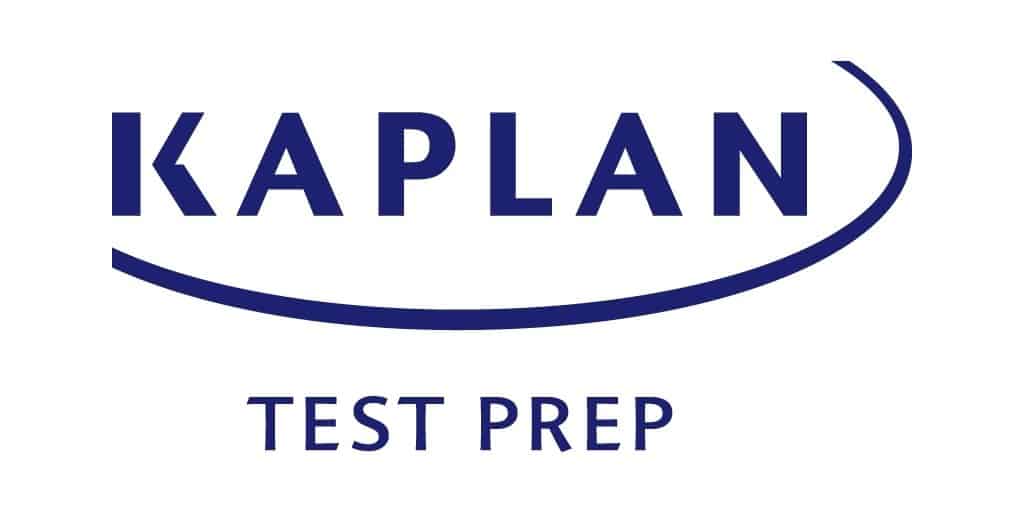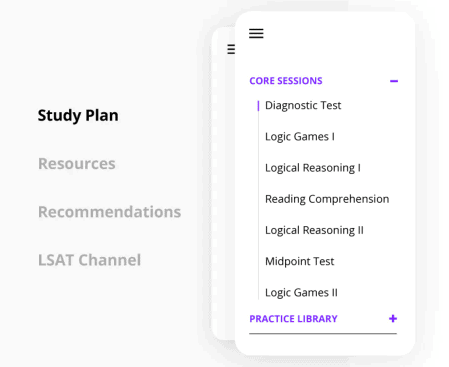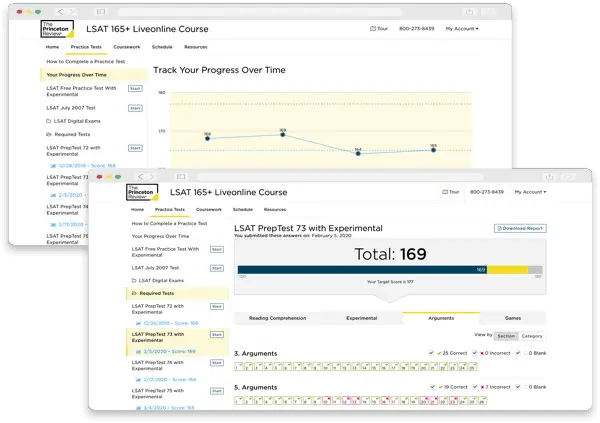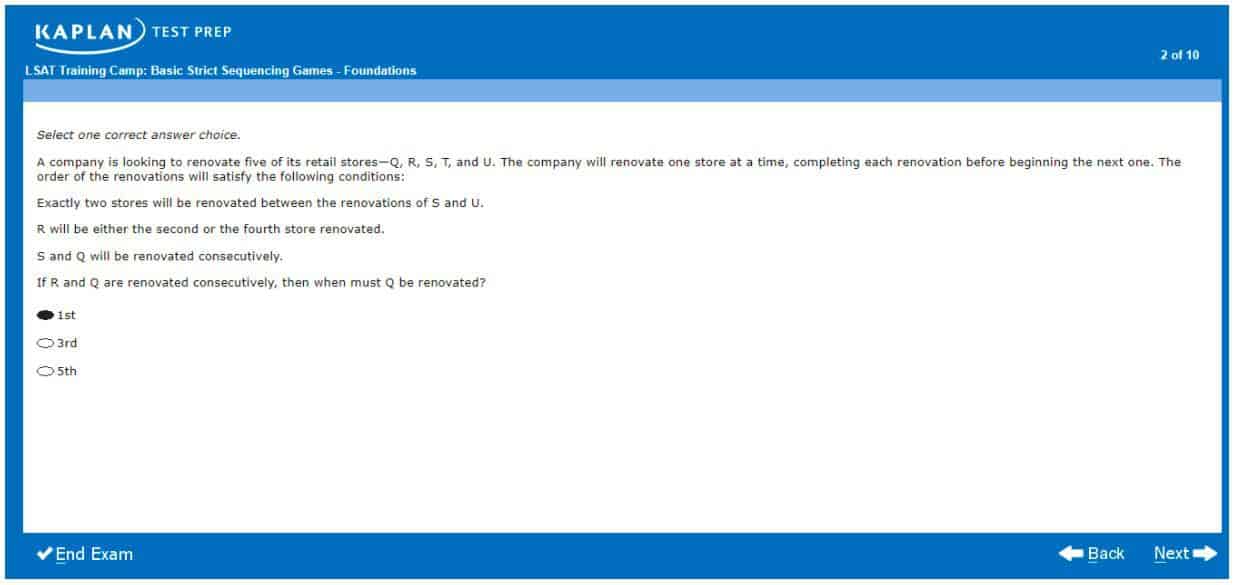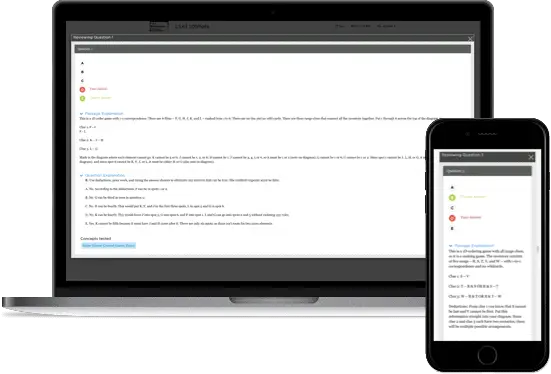Kaplan vs Princeton Review LSAT Prep Course 2023: Which Is Better?
Two of the biggest names in standardized tests like LSAT are Kaplan and the Princeton Review. Choosing between the two is not easy because both of them are known to be top-notch prep providers.
The Princeton Review is a popular name in the rounds of student reviews because of its LSAT 165+ score guarantee, which is a bold claim by any LSAT prep course.
Kaplan, on the other hand, has been in the industry for 80 years, providing quality courses for LSAT prep reviews.
If you are curious about which of them is better in LSAT test prep, then this Kaplan vs Princeton review LSAT prep will help you figure out the answer.
Kaplan vs Princeton Review for LSAT: Course Content
Let us compare Kaplan and the Princeton Review using course content first, so we would be able to see what features each of them provides.
Kaplan’s course content is diverse because it offers several course options that depend on your needs as a student. There are live online classes, in-person classes, self-paced prep, and one-on-one coaching – whatever you need. Even better, Kaplan LSAT also gives you access to the following features:
- SmartReports feedback
- Personalized study plan
- Diagnostic test
- 300+ games for Logical Reasoning and Reading Comprehension
- Online quizzes and practice tests
- Video lessons
- QuizBank (for In-person and Live Online only)
- PrepTest Library (for In-person and Live Online only)
- Kaplan LSAT Channel
- Mobile app access
Moreover, its live online course offers two options whether you need a small class size or a large one. It is worth noting that Kaplan gives you the real deal when it comes to scoring improvement because it has a guarantee that, in case you don’t improve your score after taking its course, you can either get a free reactivation of your account or a refund.
Now, let’s find out what the Princeton Review has to offer in terms of content.
The Princeton Review provides different course options that can match your learning style. It has live online classes, in-person classes, private tutoring, and a self-study course. The big difference, however, is its unique course that guarantees a score of 165 or more in the LSAT. If you are someone who aims to attain that kind of score, then the Princeton Review will be able to cater to your aspirations.
How so, you may ask? Below is a list of its course features.
- Top-notch instructors
- Official LSAT content
- Over 8,000 practice questions
- Full-length practice tests
- Online drills
- Video lessons
- Study tools for test-taking strategies
- Interactive score report
Just like Kaplan, the Princeton Review LSAT also offers a score improvement guarantee. If you don’t get a higher score after taking its course, then you will get your money back. You can also take advantage of the free remedial class if you’re not satisfied with your overall experience.
These guarantees are subject to certain conditions.
Winner
Honestly, it’s almost a tie between Kaplan and the Princeton Review because their courses have close similarities in terms of quality. However, I would still go for the Princeton Review for this benchmark because it uses the official LSAT content on its massive question bank of LSAT-style questions.
Kaplan Vs. Princeton Review LSAT Prep: Practice Questions/Tests
Kaplan LSAT uses actual LSAT questions on their practice tests and quizzes, so you will have a solid grasp on what will appear on the test day. What’s even great about Kaplan is the platform of its practice questions that allows you to eliminate answer choices that you think are incorrect.
This unique option helps you focus on the correct answer to a certain question.
When it comes to the practice tests, it provides different sets of practice tests for each course option. For instance, the in-person course has one full-length proctored test while the live online course has two full-length proctored practice tests.
The private tutoring course, on the other hand, offers three full-length proctored tests. There are also additional 80 full-length practice tests that are not proctored in all its courses.
As with the Princeton Review LSAT, its practice questions are old LSAT questions that were administered in the past. It also has a massive question bank of more than 8,000 practice questions that are all taken from LSAC since the Princeton Review is also a long-standing licensee of the council in terms of giving out LSAT official questions.
Moreover, like Kaplan, its courses have different sets of practice tests. Its self-paced prep course and LSAT 165+ course have six full-length diagnostic practice tests each while its LSAT Fundamentals course has four full-length diagnostic practice tests.
Winner
Both the Princeton Review and Kaplan incorporate official LSAT questions, so that almost a tie but Kaplan has more practice tests that are both proctored and non-proctored than that of Princeton’s.
Therefore, I am going for Kaplan LSAT because it has an abundance of these tests. Take note, one of the secrets to passing the LSAT is to practice as many tests as possible to gain familiarity.
Kaplan Vs. Princeton Review LSAT Prep: Test-taking Strategies
I should say that Kaplan, as a test prep company, is popular when it comes to unique test-taking approaches and its take on the LSAT. Overall, it gives you an ultimate guide on how to handle different question types through its ultimate guide so-called the “Kaplan Method”.
More so, each guide provides you a complete overview of what each LSAT section exactly needs from you.
Kaplan doesn’t disappoint when it comes to this aspect. Even better, it has a SmartReports feature that analyzes your test results, so you will know your weaknesses and how to improve them before the test day arrives.
Once the progress tracker determines your weaknesses, it will give you suggested video lessons that match the concepts you are struggling with the most.
Also, at the start of your course, you will undergo a diagnostic test that will become your starting point in terms of what you know and what you still need to know.
As for the Princeton Review LSAT, it does not really give so much emphasis on test-taking strategies when you go to its website. You will only know that it takes test-taking strategies a serious matter when you already begin in any of its courses.
It recommends a certain number of hours that you need to spend to prepare for the LSAT as it believes that the time you are willing to designate for LSAT prep matters on whether or not you will succeed in the LSAT exam.
The Princeton Review suggests that you spend 250 to 300 hours of LSAT test prep (1), which is the right balance of not too soon and not too late since the latter tends to make you forget concepts easily as you approach the test day.
Of course, you will also find the Princeton Review’s interactive score report as another method to help you gauge your performance on a much specific level. It has the option for you to sort your test results by time, category, subject, or difficulty.
Winner
Kaplan LSAT takes the lead in this benchmark because of its well-crafted test-taking strategies. I can say that how it deals with questions is Kaplan’s forte when it comes to testing preparations.
Kaplan Vs. Princeton Review LSAT Prep: Pricing Options
On this benchmark, I can say that these two LSAT prep courses have closely similar pricing options. Let’s take a look at Kaplan LSAT.
Kaplan LSAT’s prices for its in-person course, live online course, and self-paced course range from around $800 to $1,400. When it comes to its private tutoring course packages, the prices range from $2,400 to $5,000, which I consider as very expensive although not as expensive as the other LSAT private tutoring courses that can get to as much as $10,000.
Also, because LSAT’s logic games section is considered to be the most challenging, Kaplan also offers a separate course for that for only around $200.
How about the Princeton Review LSAT?
The pricing option of the Princeton Review LSAT is quite competitive with Kaplan’s because of little differences in the courses. Its LSAT Fundamentals, LSAT 165+ course, and self-paced course range from around $800 to $1,300. Its private tutoring course packages, on the other hand, range from $1,800 to $4,000.
Winner
Despite the slight differences, I would still say that the Princeton Review LSAT wins in this benchmark because it has a cheaper in-person course and a live online course than that of Kaplan’s. Its private tutoring packages are also much cheaper.
Kaplan Vs. Princeton Review LSAT Prep: Platform’s Ease of Use
Kaplan LSAT has an adaptive technology that makes your test prep efficient, smooth, and easy. Its live online platforms are also adaptable to your learning needs and skill level to ensure that you are studying in a customized way.
Even better, its full-length practice tests are user-friendly, so it is easy to navigate from one place to another. Kaplan also has a mobile app for easy access to your course even if you are out and about.
As with the Princeton Review LSAT’s platform, it is plain and easy to navigate. Each page on the practice tests is also not text-heavy nor image-heavy, just the right balance of everything. I also especially like its interactive score report because it is convenient.
You can also generate your score according to difficulty, subject, category, and time. This helps you address your weaknesses properly because the results are specific.
Winner
I call it a tie between Kaplan LSAT and Princeton Review LSAT because both of their platforms are convenient to use. The Princeton Review, however, does not have a mobile app. With its user-friendly platform, though, I still consider it a top-notch LSAT course in terms of ease of use.
Kaplan Vs. Princeton Review LSAT Prep: Student Support
You can reach out to Kaplan LSAT’s team of student support by calling the hotline number, sending an email by creating a support case on their contact page, and chatting live with any of its test prep specialists.
Moreover, Kaplan LSAT is also visible in social media platforms, such as Twitter, Facebook, and Instagram.
Of course, if you also have some questions, as long as they are common, then you can refer to its FAQs page. The answers to the usual customer questions are also categorized, such as payment and billing, shipping, extensions, technical issues, preparing for class, and accessibility and requesting accommodation.
While Kaplan LSAT is highly visible in terms of student support, the Princeton Review LSAT is a little less than visible. If you have queries. you can either call the student hotline number or send an email through the support page.
It also has an FAQs section, although it is not easily accessible when you go to its student support page. Nonetheless, you can also reach out to its team of student support through its social media pages on Twitter, Facebook, Instagram, and YouTube.
Winner
I would say that Kaplan LSAT is a little superior to the Princeton Review LSAT when it comes to student support because the details of its other platforms are explicitly stated on its student support page. Plus, it also has a live chat in case it takes a longer time to receive a response from email or if it is inconvenient to call its student hotline number.
Kaplan Vs. Princeton Review LSAT Prep: Additional Features
Kaplan LSAT definitely has amazing features, which include more than 300 games on the two sections in LSAT test – Logical Reasoning and Reading Comprehension. On top of its regular features, I especially like this set of games because it is an additional avenue for visual learners to understand concepts and strategies.
Whereas the Princeton Review LSAT also has impressive additional features like its verbal-specific practice tests. Aside from that, I also appreciate that the Princeton Review includes access to LSAT’s previously released questions.
Winner
It is actually almost a tie between Kaplan LSAT and the Princeton Review LSAT in this benchmark, but I still choose the latter because the verbal-specific practice tests are significant in mastering logical and analytical thinking together with word comprehension.
Final Verdict
On this LSAT Prep Kaplan Vs. Princeton Review, we were able to dissect all aspects of the two LSAT courses, which leads us to proclaim Princeton Review LSAT as the winner.
The Princeton Review LSAT wins against Kaplan LSAT when it comes to course content, pricing options, and additional features.
Whereas, Kaplan LSAT takes the lead in terms of practice questions/tests, test-taking strategies, and student support. Both of them are a tie in their respective platforms’ ease of use.
Due to their close competition as LSAT courses, I can say that each of them has its strengths in LSAT test preparation. Thus, I suggest the following in terms of your test prep needs.
Use Kaplan LSAT if:
- You want to focus on test-taking strategies to pass the LSAT.
- You prefer a small class size to have the right individual attention from the tutor.
Use Princeton Review LSAT if:
- You want to be admitted to any of the top 25 law schools (through enrolling in its LSAT 165+ course).
- You are looking to prep with verbal-specific practice tests.
Lastly, if Kaplan LSAT (2) and the Princeton Review LSAT (3) interests you, kindly check their respective websites.
References
- https://www.princetonreview.com/law-school-advice/how-long-should-you-study-for-the-lsat
- https://ww2.kaptest.com/lsat
- https://www.princetonreview.com/law/lsat-test-prep

